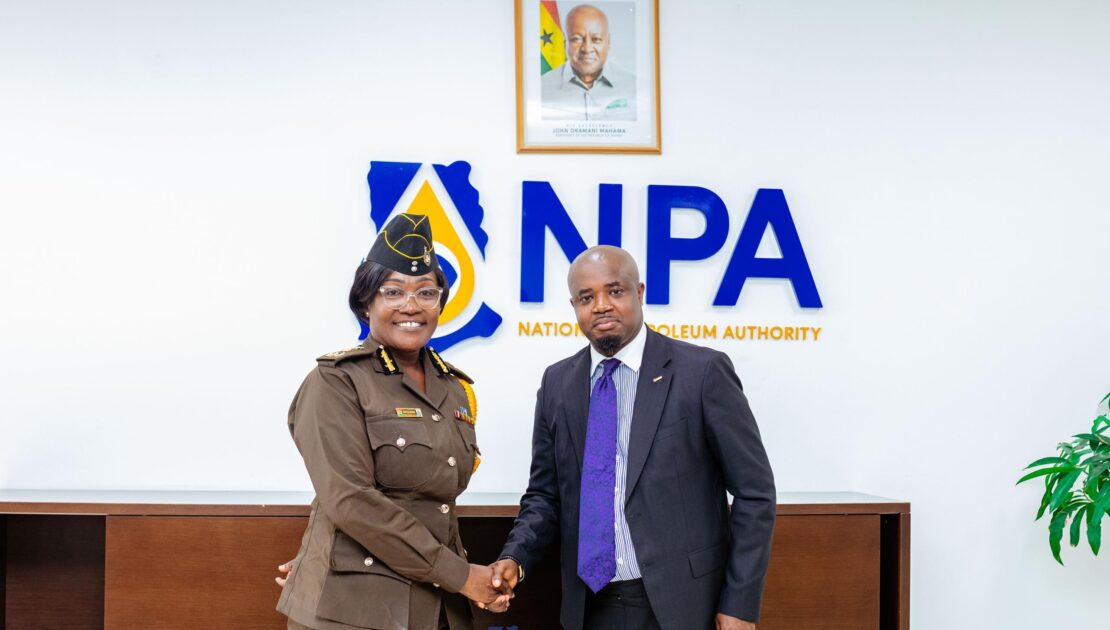The Acting Director-General of the Ghana Prisons Service, Mrs. Patience Baffoe-Bonnie (Esq.), has called on the Chief Executive of the National Petroleum Authority (NPA), Mr. Godwin Kudzo Tamaklo, as part of ongoing efforts to deepen collaboration and seek support for the Ghana Prisons Service.
During the meeting, Mrs. Baffoe-Bonnie emphasized the need for stronger partnerships to improve the welfare and operations of the Prisons Service. She expressed appreciation for the NPA’s continued support of fuel margins to the security services across the country. In his response, Mr. Tamaklo He noted that the Prisons Service remains one of the most under resourced institutions in the country and in urgent need of greater support, particularly in the area of inmates’ welfare. He assured of the NPA’s is committment to help the Service overcome some of its challenges.
Highlighting one of the key issues, Mr. Tamaklo described the current daily feeding allowance of GHS 2.00 per inmate as inadequate.
“This amount is very meagre and cannot satisfy any individual on any given day.”
He underscored the importance of ensuring that inmates are treated humanely and that prison facilities are rehabilitative, rather than punitive. “The prisons should not be seen as places of doom, but as centres for rehabilitation and reintegration, regardless of how individuals end up there,” he added.
Mr Tameklo also assured Mrs. Baffoe-Bonnie of NPA’s commitment to supporting the Ghana Prisons Service.
The NPA boss noted that he will in partnership with GOIL ensure timely and adequate supply of fuel to security agencies, including the Prisons Service and with improved tracking systems to ensure transparency and efficiency in fuel distribution.
Mrs. Baffoe-Bonnie, on her part, disclosed several initiatives being undertaken by the Prisons Service to reform and modernize the Prisons Service under the THINK PRISONS 360 initiative. She announced the establishment of dedicated Prisons TV station aimed at streamlining the narrative around the Service and especially its inmates.
She noted that the provision of vocational and technical training opportunities to inmates has equipped inmates with employable skills, boosting their chances of successful reintegration after serving their sentences and therefore appealed for institutions to take advantage of the human resource in the prisons for agriculture and industrial purposes. This would propel wealth creation for sustainability and self-sufficiency.
She further called for the modernization of prison infrastructure across the country, citing the need for improved access and more humane conditions in facilities nationwide.
The meeting ended with a mutual commitment to continued collaboration and dialogue in the interest of national development and social responsibility.






